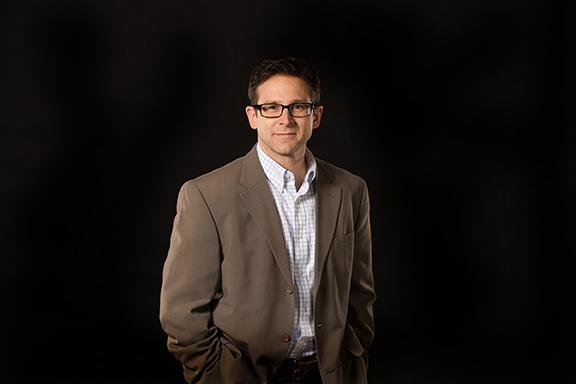
Woody’s research to appear in Psychology of Music, upcoming new book
calendar icon01 Feb 2019 user iconBy Kathe C. Andersen
Lincoln, Neb.--Robert Woody, the Steinhart Foundation Distinguished Professor of Music, Professor of Music Education and undergraduate education co-area head in the Glenn Korff School of Music, has a new research study in the journal, “Psychology of Music.”
“Psychology of Music” is a leading peer-reviewed, international academic journal that publishes papers in the field of music psychology.
His article is titled “Musicians’ use of harmonic cognitive strategies when playing by ear” and will be published in an upcoming issue of “Psychology of Music.” (Online at https://go.unl.edu/fd62)
“Around the world and throughout human history, aural transmission of music and ear-based performance are the norm,” Woody said. “By excluding ‘by ear musicianship’ from music learning experiences, we can, in a way, remove the humanness from music making, and turn performance into an artificial activity.”
His research indicates that all musicians—not just rock and jazz performers—better their musicianship by improving their ability to make music by ear.
“It is a foundational skill that facilitates virtually all other performance skills, including sight-reading music notation and performing music from memory,” Woody said.
Even instrumental musicians who are squarely in the formally-educated “classical” tradition are advantaged by developing their ear-based musicianship.
“Those who are better ear-players are able to learn new musical material more quickly and to perform music notation in a more understanding way,” Woody said.
He noted Paul Shaffer’s recent performance with the Nebraska Jazz Orchestra at the Lied Center for Performing Arts in January.
“I watched the Letterman Show for years and always admired Paul Shaffer’s musicianship. Sometimes Letterman would go into his studio audience and have an audience member sing an old silly song from their childhood,” Woody said. “From the stage, Paul Shaffer needed just a couple bars of the song to identify the underlying chord progression of the song and instantaneously generate a piano accompaniment. And most of the time, by the end of the person’s short song, the rest of his band had joined in with a full band accompaniment that sounded like a professionally composed arrangement. These displays of ear-based musicality were great. I always thought, ‘Now these folks have REAL musicianship!’”
The article in “Psychology of Music” isn’t the only upcoming publication for Woody. He also has a contract with Rowman & Littlefield Publishing for his book titled “Becoming a Real Musician: Inspiration and Guidance for Teachers and Parents of Musical Kids,” which will likely be published later in 2019 or 2020.
The book will be a tool for helping both teachers and parents of musical children work as a team for providing young people with music learning experiences that are meaningful and lasting.
“Making music should not be just a pastime of childhood,” Woody said. “If kids are given what they need to become real musicians, they will take into adulthood the skills and values for a musically active life, whether music becomes for them a profession or an avocation for leisure time.”
Teaching music in the future will become more inclusive and considerate of the learners themselves. As this evolution of music education happens, parental involvement will be especially critical in assuring that meaningful communication between teachers and students guides the musical growth.
“The phrase ‘Get real!’ tells people that they should try to understand the true facts of a situation and not hope for what is impossible. As the musical adults in our children’s lives, we need to get real about what we want them to get out of the music educational opportunities and musical-social experiences we give them,” Woody said. “My goal with this book is not to reveal what young people must do to acquire the skills of a professional musician, or how to make a good living as a performer. I define a “real musician” as someone who is able to participate in music making in a variety of real-life settings, including common social situations—from large formal gatherings such as weddings and funerals to smaller informal ones such as a circle of friends and family around a campfire.”
Woody is confident that his book will have appeal for both teachers and parents of musical children.
“I know lots of people my age who have kids doing school music, and they’re always asking questions,” Woody said. “They’re wanting to get their kids the best experience and wondering if it’s worth all of these early mornings for this and paying for this trip or paying for this experience. I’m really optimistic about this book being valuable to music educators, but also valuable to people who want music to be part of their lives.”
Woody has taught at the University of Nebraska–Lincoln since 2001. His research deals primarily with the psychology of music. He is an author of the book, “Psychology for Musicians: Understanding and Acquiring the Skills,” with Andreas C. Lehmann and John A. Sloboda (Oxford University Press).
He is specifically interested in the cognitive mechanisms of expressive performance and the skill-based factors that contribute to participatory music involvement among people. He has published articles in research journals such as the “Journal of Research in Music Education,” “Psychomusicology” and the “Bulletin of the Council for Research in Music Education.” His other writings have appeared in the “Music Educators Journal,” “General Music Today” and “American Music Teacher.”
Woody regularly posts his blog, “Live. . . In Concert” on the Psychology Today website.